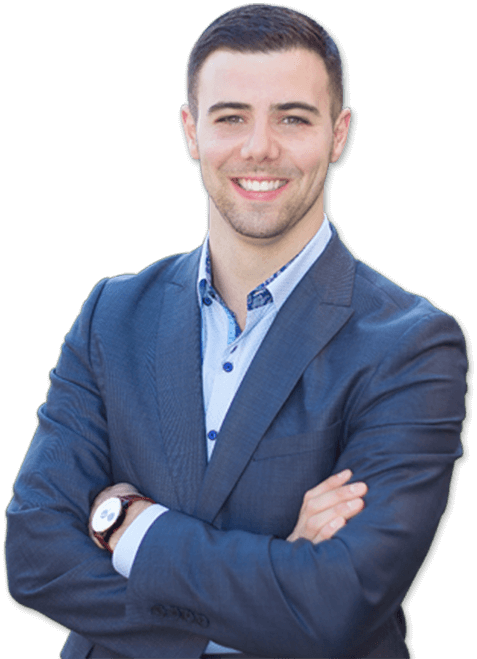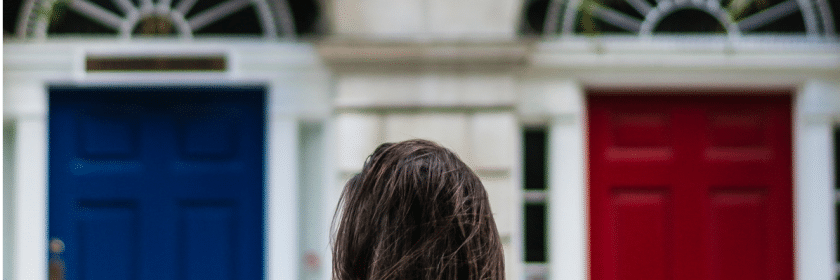What Type of Mortgage is Best for Me?
Breaking Down the Different Mortgages Available to Homebuyers
When it comes time to purchase a new home, trying to figure out on your own what kind of mortgage is best for you can get pretty overwhelming. And with so many mortgage options available in Canada, it can make your head spin.
So, where do you even start?
What Mortgage is Best for You?
Whether you are a first-time homebuyer, or you have owned before, it’s crucial that you have a solid understanding of what your options are when it comes to borrowing.
Work with a Broker to Find the Best Fit
Don’t try to tackle this process on your own. Speak with a mortgage broker to get a better idea of which path you should take.
A mortgage broker will look at your specific situation and find you a mortgage option that best meets your needs.
Here are some of the mortgages that are available for Canadian homebuyers:
Traditional/Conventional Mortgages
A traditional mortgage is probably what you’ve always understood a mortgage to be. With these mortgages, the borrower puts down a minimum of 20% of the home’s purchase price as a down payment, while the lender provides the rest.
This mortgage option has a low loan-to-value ratio, meaning that the amount of the loan is low in relation to the property value.
High-Ratio Mortgages
A High-Ratio Mortgage is one where the borrower puts down less than 20% of the purchase price of the home as a down payment. This is the most common option for first-time homebuyers.
The minimum percentage you can put down is 5 percent.
The downside of putting down less than 20 per cent is that you must have mortgage default insurance through Canada Mortgage and Housing Corporation (CMHC), Genworth Financial or Canada Guarantee.
Fixed-Rate Mortgages
Fixed-Rate Mortgages have a set interest rate that does not change for a specified period of time that is determined by the lender.
One of the benefits of this is that your payments are fixed and won’t increase during the term. However, a downside is that interest rates for fixed mortgages tend to be slightly higher than other types of mortgages where the rate changes.
Fixed-rate mortgages are favourable when interest rates are low and are expected to rise over the length of the term.
Adjustable-Rate Mortgage (ARM)
This type of mortgage differs from a fixed-rate mortgage in that it can change at any time as the lender has the ability to create their own prime rate.
These changes can affect both the interest rate of the loan as well as the monthly payment.
Variable Rate Mortgage (VRM)
This is another type of mortgage where the loan’s interest rate changes depending on the current prime rate. But with a VRM, your monthly payments don’t change because the fluctuating amount is the amount of the payment that’s applied to the mortgage principal.
A VRM allows you to maintain some stability when it comes to your monthly payments but benefit if interest rates drop.
Convertible Mortgage
A convertible mortgage allows you to move from a variable to a fixed-rate, or a shorter to longer term at any time without the risk of penalty.
With this option, your interest rate will also switch to the current rate offered by the lender for the new term.
This type of product is most often used as a convertible open term. This typically occurs when a borrower receives a renewal offer and does not respond prior to the renewal date. In this instance, most lenders will renew the mortgage into an open convertible mortgage so that the file can be converted to one of their other products and term lengths.
Hybrid Mortgage
A hybrid mortgage—also known as a 50/50 mortgage—is a combination of fixed and variable rate mortgages.
With this type of mortgage, part of the loan is financed at a fixed-rate while the other is financed at a variable rate.
The terms for both parts may vary, which can be difficult to manage when it comes time to renew your term. Keep in mind that it can also be tricky to transfer a hybrid mortgage to another lender.
Closed Mortgages
With a closed mortgage, if you pay off the mortgage before the end of the term, it will trigger a mortgage penalty. Others might have a pre-payment limit, where severe penalties are imposed if the borrower makes a payment greater than the limit.
Most mortgages are considered closed; however, many include pre-payment privileges, meaning parameters are in place that allows you to pay the mortgage off more quickly. This includes the 1,2,3,4,5,7, and 10-year fixed rates, and the 3 and 5-year variable with most lenders.
Open Mortgages
Open mortgages provide more flexibility and allow you to make lump sum or accelerated payments without penalty before the end of the amortization period. However, they are not very common.
Mortgages that are open usually have rates that are significantly higher than the average. For example, most lenders will have an open rate ranging from 4.5% to 8%. This is incredibly high, considering rates currently range between 2.39% and 3.5%.
Reverse Mortgages
Also known as home equity conversion mortgages, a reverse mortgage allows you to turn your home equity into cash while you remain living him your home.
Reverse mortgages are loans designed specifically for retirees to help relieve financial stress and provide some extra income.
This money can be borrowed all at once as a one-time lump sum payment, or in recurring or single payments spread out over time.
Portable Mortgages
This type of mortgage moves whenever you do. This means that if you move and purchase a new home, you can take your current mortgage and apply it to the new property. However, you must go through the qualification process again.
This is a good option if your current mortgage has a lower interest rate than what you would get when buying another home.
Assumable Mortgages
Just as the name suggests, an assumable mortgage can be assumed by someone else.
How it works is when you sell your house, the outstanding mortgage is transferred to the buyer.
The purchaser will still have to qualify for the mortgage in the usual manner, and the lender will still have to approve the transfer of the mortgage before the seller is released from their obligations under the mortgage.
An assumable mortgage can be appealing for homebuyers if interest rates are increasing or have increased during the term of the mortgage.
Home Equity Line of Credit (HELOC)
A home equity line of credit is a revolving line of credit secured using the equity you’ve built in your home.
A HELOC is usually used in conjunction with a mortgage. However, it can be used as a mortgage on its own, but only up to 65% of a home’s property value if the lender is a bank.
Since credit unions are governed by provincial rules, these lenders can offer a HELOC of up to 80% of your home’s value.
A HELOC allows you to borrow money as needed up to that amount, but the interest is dependant on the prime rate and can change at any time. A benefit of this is that it gives you the flexibility of paying as much of the loan as you want or making interest-only payments.
Cash Back Mortgage
With this option, you get a percentage of the property you plan to purchase upfront as cash. This can be used for whatever you wish, with the exception of your down payment.
The downside of this is that the interest rate is higher and can end up costing the borrower nearly double the value of the cash itself.
Collateral Mortgage
This is a mortgage that allows your lender to lend you more money as your property increases in value. This is done without the need to refinance your mortgage.
This can be a good option if there’s a chance you will need another loan down the road. Keep in mind that if you fall behind on payments, your interest rates can be increased by as much as 10 percent.
Buying a house is stressful enough without having to worry about picking out a mortgage. That’s why it’s so important to have the right help to guide you through the process.
Speak with a mortgage broker to find out what type of loan will best meet your needs so you can start your new life in your new home right away.

Chris Allard’s experience in the field means he can get you offers with over 50 financial institutions lending in Ottawa. Every lender has many mortgage products they offer, which means Chris and his team will make sure a mortgage caters to your needs while also ensuring you get a competitive rate. Chris Allard is a proud mortgage broker of Smart Debt Mortgages, independently owned and operated. Smart Debt broker #12236.


